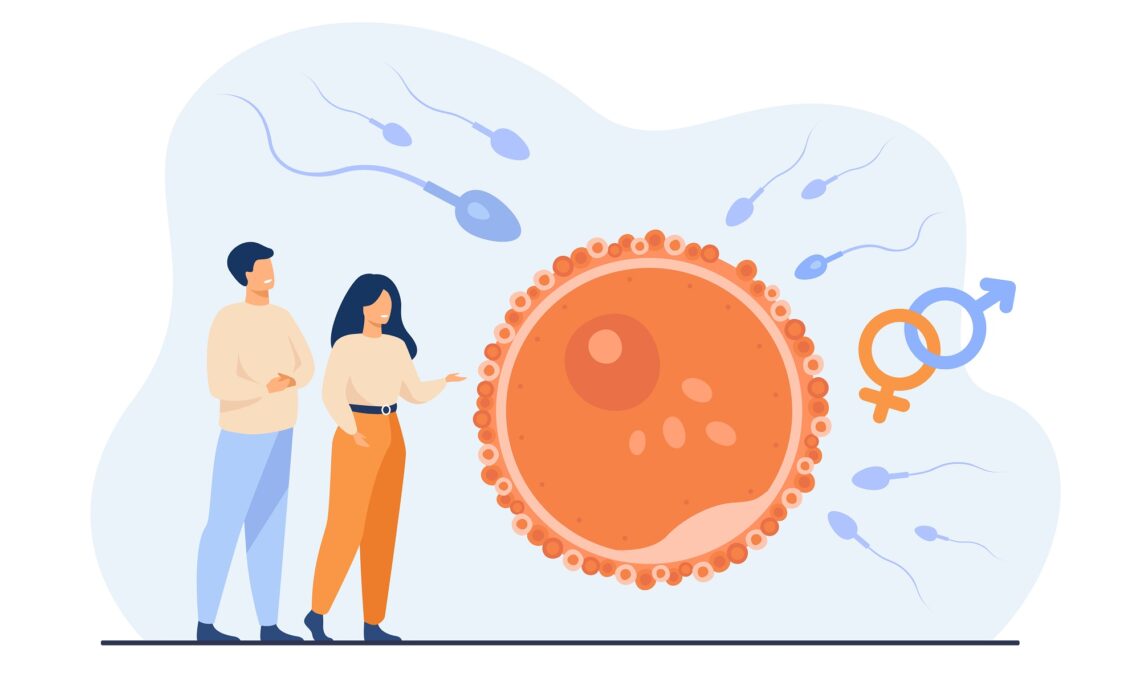Fertility is a complex and delicate aspect of human biology, and the window of opportunity to conceive naturally is limited. For many individuals and couples struggling to conceive, In Vitro Fertilization (IVF) offers a hopeful solution. However, the success of IVF is not solely dependent on medical procedures or the quality of the clinic—it is heavily influenced by age. Timing plays a critical role in the fertility journey, as the biological clock ticks for both men and women, but with different implications.
This article delves into how age affects IVF treatment, exploring both the challenges that come with getting IVF later in life and the advantages of earlier intervention. We’ll also discuss emerging fertility treatments and strategies that can help improve outcomes for individuals considering IVF at various stages of life.
The Biological Clock: Understanding Age and Fertility

Women’s Fertility and Age:
Women are born with a finite number of eggs, and as they age, both the quantity and quality of these eggs decline. Fertility generally peaks in the late teens to late 20s and begins to decline in the 30s. By the time women reach their mid-30s, the decline accelerates, with fertility dropping significantly after age 35.
Age-related infertility in women can be attributed to several factors:
- Decreased egg quality: As women age, the eggs they produce tend to have chromosomal abnormalities, leading to a higher risk of miscarriage, complications during pregnancy, and failed IVF cycles.
- Diminished ovarian reserve: The number of eggs a woman has decreases over time, and by age 40, many women may have a low ovarian reserve, meaning there are fewer viable eggs for IVF.
- Increased risk of conditions: As women age, they are more likely to experience underlying reproductive conditions, such as endometriosis or fibroids, that can complicate fertility treatments.
Men’s Fertility and Age:
While men don’t experience the same sharp decline in fertility with age as women do, male fertility does gradually decrease over time. Regular exercise can help improve overall health, including sperm quality, which tends to decline with age, especially after the age of 40. Older men may experience:
- Reduced sperm count and motility: As men age, the quantity and movement of sperm tend to decline, which can make conception more difficult.
- Decreased sperm DNA integrity: With age, sperm may have more DNA fragmentation, which can reduce the chances of a successful pregnancy and increase the risk of genetic abnormalities.
- Increased risk of miscarriage: The likelihood of miscarriage may rise due to sperm DNA damage, though this is still less pronounced than in women.
While the impact of age on male fertility is not as pronounced as it is in women, couples facing male infertility are increasingly turning to IVF to overcome these challenges.
IVF Success Rates by Age

When it comes to IVF, age is one of the most significant predictors of success. In fact, success rates for IVF vary considerably depending on the age of the woman undergoing treatment. The American Society for Reproductive Medicine (ASRM) provides general success rate data to help prospective IVF patients understand the likelihood of pregnancy based on age. Here’s a general breakdown of IVF success rates:
- Under 35 years old: Women in this age group typically have the highest IVF success rates, with a success rate of around 40-45% per cycle.
- 35-37 years old: Success rates begin to drop slightly, with a success rate of around 30-35% per cycle.
- 38-40 years old: IVF success rates for women in this age group drop to about 20-25% per cycle.
- Over 40 years old: IVF success rates fall significantly after age 40, with a success rate of around 10-15% per cycle. However, this can be lower depending on factors like egg quality and overall health.
For women over 40, the chances of IVF success are significantly lower due to a decrease in both the number and quality of eggs. However, there are still viable options for women in this age group, particularly through the use of egg donors or genetic testing.
The Role of Egg Donors and Genetic Testing
For women over 40 or those with low ovarian reserve, using donor eggs is often the most successful path to achieving pregnancy through IVF. In this case, eggs from a younger, healthy donor are used, bypassing the issue of egg quality and age-related infertility. Egg donation allows older women to experience pregnancy and childbirth, even if their own eggs are no longer viable.

In addition to egg donation, genetic testing of embryos through preimplantation genetic testing (PGT) is another valuable option. PGT allows doctors to screen embryos for chromosomal abnormalities before implantation. This can help reduce the risk of miscarriage, particularly for older women, and increase the chances of a successful pregnancy.
When Should You Consider IVF?
There’s no one-size-fits-all answer for when to start IVF, but the general advice is that the earlier you pursue treatment, the better the outcomes. Doctors often recommend women under 35 try natural conception or less invasive fertility treatments for a year before considering IVF. For women over 35, it’s typically advised to seek fertility help sooner—within six months of trying to conceive.
Women in their 30s and early 40s who are experiencing infertility should seek out a fertility specialist to assess their options. Age-related infertility is one of the main reasons for seeking IVF, and earlier intervention can help maximize the chances of success. Women who have specific medical conditions, such as polycystic ovary syndrome (PCOS) or endometriosis, may also benefit from early IVF treatment.
For women in their 40s, it is important to consult with a fertility expert early on to discuss options, including egg retrieval, egg donation, and the use of genetic testing.
IVF Alternatives and Adjunctive Treatments
While IVF is often the most effective option for couples struggling with infertility, it is not the only choice. Depending on age and the underlying cause of infertility, there are other treatments to consider, including:

- Intrauterine Insemination (IUI): A less invasive and less expensive option than IVF, IUI involves placing sperm directly into the uterus around the time of ovulation. However, it’s usually most successful in women under 35 with no major fertility issues.
- Egg Freezing: For women who are not yet ready to have children but want to preserve their fertility, egg freezing (also called oocyte cryopreservation) is an option. By freezing eggs at a younger age, women can later use them for IVF if they decide to conceive later in life.
- Fertility Medications: For women with issues like ovulation disorders, fertility medications such as Clomid or injectable hormones can help stimulate egg production and improve the chances of conception.
- Lifestyle Changes: In some cases, improving diet, exercise, stress levels, and overall health can help boost fertility naturally or increase the success rate of fertility treatments.
Conclusion
Understanding how age affects IVF treatment is essential for anyone considering assisted reproduction, as fertility and age are closely linked. While age can significantly impact IVF success rates, advances in fertility treatments—such as egg donation, genetic testing, and egg freezing—offer hope for individuals and couples at various stages of life.
The key to success with IVF is not only the medical intervention but also the timing. The earlier you begin to explore your options, the more successful IVF treatments are likely to be. Whether you are in your 20s, 30s, or 40s, consulting a fertility specialist early can help you make informed decisions and increase your chances of having a successful pregnancy. Remember, every individual’s fertility journey is unique, and age is just one of many factors that influence the process. With the right guidance, support, and treatment, IVF can offer a pathway to parenthood, no matter where you are on your fertility timeline.


